Archives of General Psychiatry 55, 547–552 26Bebbington, P, and Kuipers, L(1994)The predictive utility of expressed emotion in schizophrenia An aggregate analysis Psychological Medicine, 27Leff J, Wig NN, Ghosh A, et al (1987) Expressed emotion and schizophrenia in North IndiaStart studying Lecture 5 Expressed Emotion in Schizophrenia and Other Disorders Learn vocabulary, terms, and more with flashcards, games, and other study toolsIt is the main psychological treatment used with schizophrenia, and the NICE (14) recommends that all patients with schizophrenia are offered this treatment The basic assumption is that people with schizophrenia have distorted beliefs which influence their behaviour

Explanations Of Schizophrenia Ppt Download
Expressed emotion schizophrenia tutor2u
Expressed emotion schizophrenia tutor2u-Social desirability, while a recognized source of respondent bias among MexicanAmericans, has not been evaluated as an explanation for the lower rate of high expressed emotion (EE) found in the family members of MexicanAmericans versus Caucasians with schizophreniaExpressed emotion, critical comments, hostility and emotional over involvement have been shown to be most predictive of relapse 1 Expressed emotion can be rated as 'high' or 'low' Most studies support the hypothesis that high expressed emotion predicts relapse of schizophrenia 2 Brown and colleagues studied relapse rates of people in
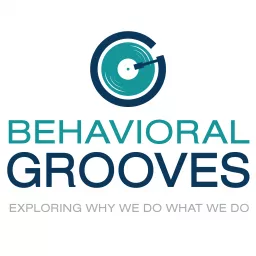


Behavioral Grooves Podcast Podcast Addict
RELATIONSHIP OF EXPRESSED EMOTION WITH RELAPSE OF SCHIZOPHRENIA PATIENTS IN KELANTAN M Z Azhar, S L Varma ABSTRACT The families of schizophrenic patients were studied to find out the level of expressed emotion in them leading to the relapse of these patients The patients were having more than two episodes of schizophrenia (DSMIIIR) The mostSchizophrenia can cause 'positive symptoms', which are symptoms that are not usually present in a normal person Positive symptoms reflect an excess or distortion of normal functioning People with schizophrenia often suffer terrifying symptoms such as hearing internal voices not heard by others, or believing that other people are reading their minds, controlling their thoughts, orStudy of family expressed emotion and relapse of male schizophrenia patients in Singapore Internet Oral Communication at 4th International Social Work Conference on Health & Mental Health, Quebec City, Canada 04 May 2327 cited 11 Jul 16
Research on emotion has so far assumed that emotion expressions become more distinct as their intensity increases But there is little empirical evidence to support this intuitivesounding ideaThe form of high expressed emotion (EE) (Mo¨llerLeimku¨hler , & Jandl, 11) The expressed emotion (EE) is considered to be an adverse family environment, which includes the quality of interaction patterns and nature of family relationships among the family caregivers and patients of schizophrenia disordersEmotional over Involvement, Warmth and Positive Regard 4 It is a significant feature of the family environment that has been found to predict relapse in a wide range of mental disorders 5 Expressed emotion has been studied across various psychiatric disorders such as Schizophrenia
Apr 08, 18 · These study notes cover the core topics relating to Schizophrenia for A Level Psychology Core Topics Revision Flashcards for AQA A Level Psychology SKUExpressed emotion is the level of negative emotion expressed towards a patient by their carersverbal criticism and sometimes accompanied by violencehostility, anger and rejection towards the patientemotional over involvement these high levels of expressed emotion lead to stress for patient this also usually the explanation relapse in patientsNov 07, · High expressed emotion (EE) in a patient's family is a known risk factor of relapse in schizophrenia The three components of high EE – criticism, hostility and emotional overinvolvement – were developed through a datadriven approach and a focus on overt abrasive behaviours The influence of covert abrasive behaviours has not been explored



Determinants Of Expressed Emotion In Mothers Of Schizophrenia Patients Sciencedirect



Explanations Of Schizophrenia Ppt Download
Feb 12, 21 · The family dysfunction explanation is an explanation that sees maladaptive relationships and patterns of communication as a source of stress which influences the development of schizophrenia Parents of schizophrenics often display three types of dysfunctional characteristics including high levels of interpersonal 111, 112 Additionally, genetic risk for schizophrenia"Brown (1972) showed that patients who returned from hospital to homes where there was a high level of emotionality (High levels of Emotion were Expressed — HEE) were more likely to have a relapse, and would have it sooner than those with LEE (Low levels of Emotion Expressed) families" alevelpsychologynotes (07) Such as 51% of szExpressed emotion (EE), is a measure of the family environment that is based on how the relatives of a psychiatric patient spontaneously talk about the patient It specifically measures three to five aspects of the family environment the most important are critical comments, hostility, emotional overinvolvement, with positivity and warmth sometimes also included as indications of a lowEE
/positive-symptoms-in-schizophrenia-2953124-5d9769edb6ae4fa38284442f850315e1.png)


Positive Symptoms In Schizophrenia



Expressed Emotion And Relapse Of Schizophrenia In Hong Kong
Expressed emotion Level of emotion expressed towards patient by carer, includes hostility, criticism & emotional overinvolvement, which is primary cause of relapse The schizophrenogenic mother Cold, rejecting & controlling & creates tense family atmosphere, which leads to delusionsThe aim of this activity is for students to consider the validity of classifying and diagnosing schizophrenia, by looking at the symptom overlap between schizophrenia and other disorders, namely depression and bipolar in particular the behavioural, emotional and cognitive characteristics of depression, studied in Year 1 tutor2u uses–151 Kavanagh DJ Recent developments in expressed emotion and schizophrenia Br J Psychiatry 1992;



Schizophrenia Genetics A Level Psychology Aqa Revision Study Rocket



Animal Models Of Psychosis In Alzheimer Disease The American Journal Of Geriatric Psychiatry
Results There were statistically significant differences in socio demographic and clinical variables in schizophrenia vs bipolar group % vs 322% were male, 37 vs 43 mean age, 96% vs 59% were single, 50% vs % unemployed, and % vs 40% had college studies In addition, 2 vs 25 numbers of hospitalisations, 18 vs 16 mean age of substanceOct 10, 14 · Flat Affect in Schizophrenia Relation to Emotion Processing and Neurocognitive MeasuresSchizophrenia Bulletin (06) 32 (2) Komaroff, AL Harvard Medical School's Family Health Guide on Schizophrenia New York Free Press, 06 Print Shtasel DL, Gur RE, Gallacher F, Heimberg C, Cannon TD, Gur RC Phenomenology and functioning inEXPRESSED EMOTION AND SCHIZOPHRENIA 391 STUDIES OF SCHIZOPHRENIA AND "EXPRESSED EMOTION" Originated in England by sociologist George Brown and his col leagues, "expressed emotion" (or EE) has come to refer specifically to criticism, hostility, and overinvolvement expressed by close kin toward a relative who suffers from schizophrenic illness
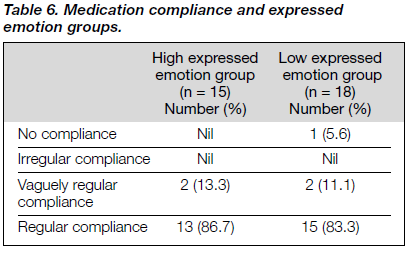


Expressed Emotion And Relapse Of Schizophrenia In Hong Kong



Schizophrenia Genetics A Level Psychology Aqa Revision Study Rocket
Expressed emotion negative emotion expressed by the family to their child (patient) Also overinvolvement in child's life Leads to development of paranoid delusions which leads to/ is a symptom of SZ;Jan 02, 18 · Ivanović, M & Vuletić, Z (19) Expressed emotion in families of patients with frequent types of schizophrenia and influence on the course of illness nine months followup Paper presented to the XIX Congress of the European Association of Behaviour Therapy, Vienna, September 19 Google ScholarExpressed emotion Another family variable associated with schizophrenia is a negative emotional climate, or more specifically, a high degree of 'expressed emotions' Expressed emotion is a family communication style that involves criticism, hostility and emotional overinvolvement High levels of this may influence relapse rates, or the
.jpg?ezimgfmt=rs:0x0/rscb25/ng:webp/ngcb25)


Schizophrenia Diagnosis And Treatment Simply Psychology
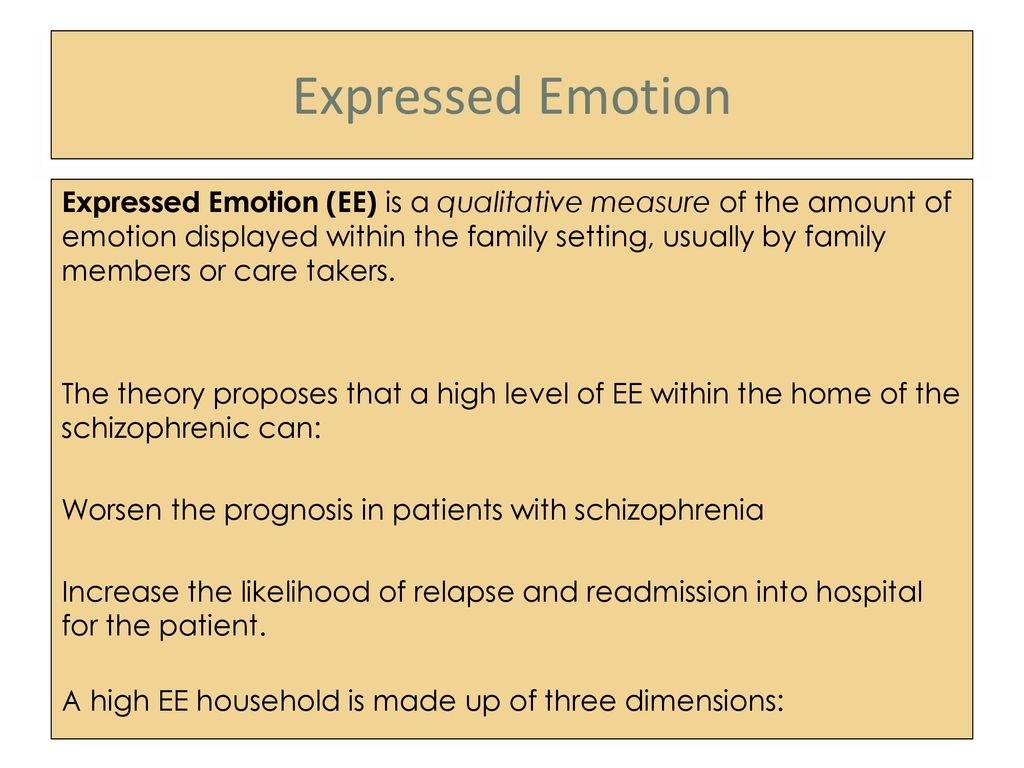


Psychological Explanation Ppt Download
Expressed Emotion and the Course of Schizophrenia in Japan Volume 167 Issue 6Feb 01, 13 · The level of expressed emotions in the family (EE) and components thereof (emotional overinvolvement EOI, and critical comments CC) have been found to be related to treatment outcomes in psychotic patients One point of interest is the dynamic of various outcomes in relation to initial EE, CC and EOI levelsJun 03, 18 · Collections of teaching, learning, assessment and other resources provided to delegates on tutor2u's superb CPD Webinars What You Really Need to Know If You Are Teaching Schizophrenia SKU



Explanations Of Schizophrenia Ppt Download



Determinants Of Expressed Emotion In Mothers Of Schizophrenia Patients Sciencedirect
Nov 07, · Background High expressed emotion (EE) in a patient's family is a known risk factor of relapse in schizophrenia The three components of high EE criticism, hostility and emotional overinvolvement were developed through a datadriven approach and a focus on overt abrasive behavioursExpressed emotion and schizophrenia in North India III Influence of relatives expressed emotion on the course of schizophrenia in Chandigarh British Journal of Psychiatry 151 , 166 – 1731 day ago · So our emotions differ in terms of degrees of strength But how does this affect our ability to infer meaning from how an emotion is expressed?



Aqa A Level Psychology Essay Plans Pedsacademy
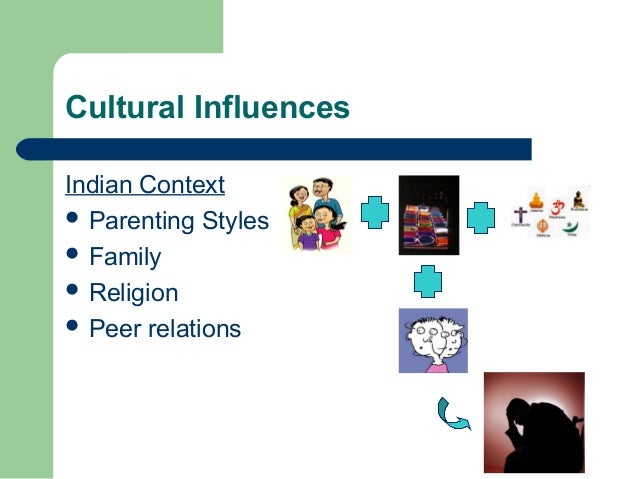


Expressed Emotions
Jun 13, 17 · Effect of caregivers' expressed emotion on the care burden and rehospitalization rate of schizophrenia Xia Wang,1 Qiongni Chen,2 Min Yang1 1Xiangya School of Nursing, 2Nursing Department, Second Xiangya Hospital, Central South University, Changsha, Hunan, People's Republic of China Background This study assessed the effect of expressed emotion (EE) among caregivers of schizophreniaEvidence for particular differences in family relationships as a cause of schizophrenia is fairly weak However there is support for idea that family relationships and interpersonal communication may well be associated with maintenance of condition and rate of relapse, particularly for those returning from a hospital stay Specifically, the degree of "expressed emotion" can beVideo abstract of Original Research paper "Effect of caregivers' expressed emotion on the care burden and rehospitalization rate of schizophrenia" published
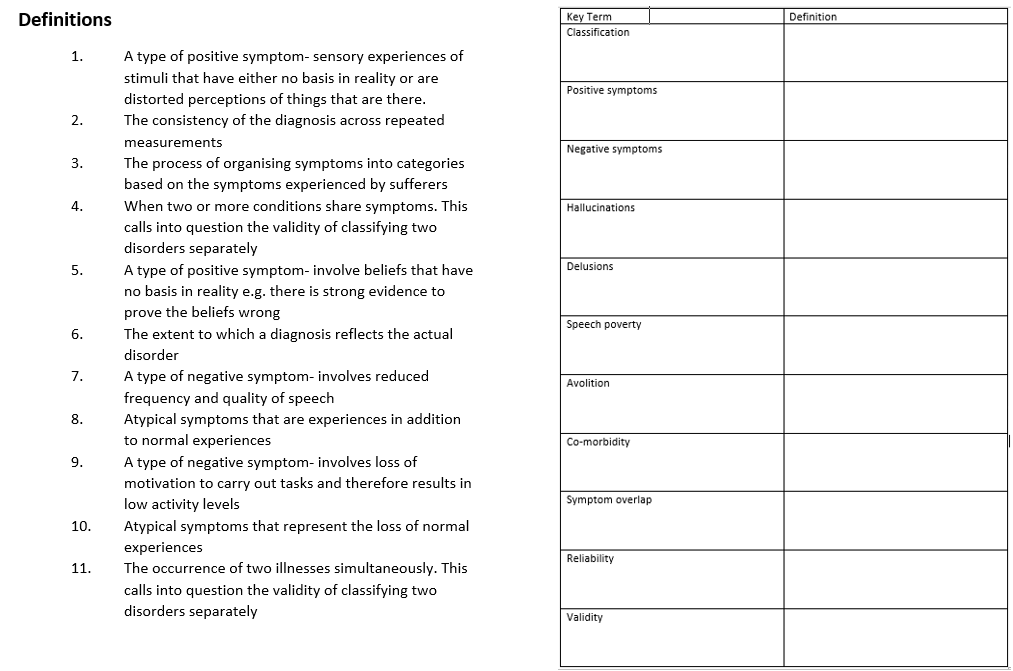


Schizophrenia Quiz Psychology Quiz



12 3 Aqa Psych Cc Psychological Explanations Pdf Title Psychological Explanations Specification Psychological Explanations For Schizophrenia Family Course Hero
One disadvantage of the negative expressed emotion theory is that 52% of schizophrenics who return to homes with high expressed emotions blank_startdon't relapseblank_end The reason for this may be blank_startindividualblank_end differences such as the types of symptoms the experience (negative vs positive), their personality and theExpressed emotion among employees of a clinic or other places in which people are in close proximity to patients with disorders also may put patients at a risk of relapse Expressed emotion by the family of a patient with a disorder is characterized by having a critical, hostile, or emotionally overinvolved relationshipJan 02, 18 · Since the introduction of the concept of expressed emotion (EE) (Brown et al, Reference Brown, Monck and Carstairs 1962, Reference Brown, Birley and Wing 1972), that is emotion expressed by close relatives towards a family member with schizophrenia, there have been several studies focusing on its influence on the course of schizophrenia and other disorders
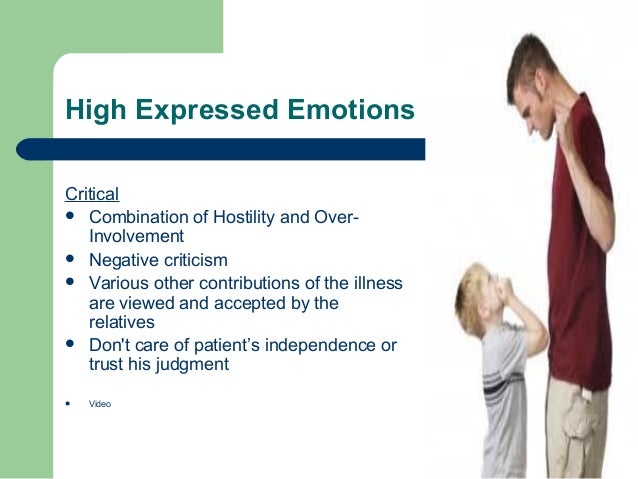


Expressed Emotions



Schizophrenia Topics Psychology Tutor2u
The expressed emotion (EE) measure is a robust predictor of relapse in schizophrenia At least twelve studies from a range of cultures have now shown this, although the authors of one maintain their findings are the result of confounding factorsOct 02, 13 · Expressed Emotions Niharika Thakkar MA, NET, MBPsS, Clinical Psychology Slideshare uses cookies to improve functionality and performance, and to provide you with relevant advertising If you continue browsing the site, you agree to the use of cookies on this websiteJan 01, 1990 · For thirty years research has been consistently demonstrating the validity of the concept of 'High Expressed Emotion' (HEE) After early pioneering work by Brown it was established that environmental influences, particularly, the emotion expressed by relatives to sufferers of schizophrenia, are strongly implicated in relapse



Hypothesized Relationship Among Expressed Emotion Ee Schizophrenic Download Scientific Diagram



Aqa A Level Psychology Essay Plans Pedsacademy
AO2 Possible Content 4 Marks Jack's mother was never happy with him;Karno M, Jenkins JH, De La Selva A, Santana F, Telles C, Lopez S, Mintz J Expressed emotion and schizophrenic outcome among MexicanAmerican families J Nerv Ment Dis 1987;N2 Although it is clear that expressed emotion (EE) is associated with the course of schizophrenia, proposed models for this association have struggled to account for the relationship between the EE index of emotional overinvolvement (EOI) and relapse



The Role Of Family Dysfunction In Schizophrenia A Level Psychology Ao1 Revision Youtube


Moral Iq Rudeness Abuse Unfairness Calm Mind Open
Interpersonal communication – Expressed emotion While the evidence for the double blind theory is limited, there is some evidence that the interactions within a family can play a key role in maintaining the symptoms of individuals who are already suffering from schizophreniaHere are some example answers to the two Paper 3 questions on Schizophrenia in the 19 AQA exams Question 13 One reason is that a volunteer sample has been used and it is possible that the members of the selfhelp group with schizophrenia who volunteered had better language ability then most people with schizophreniaJack's mother would act affectionate but then say nasty



Specification Details Ppt Download
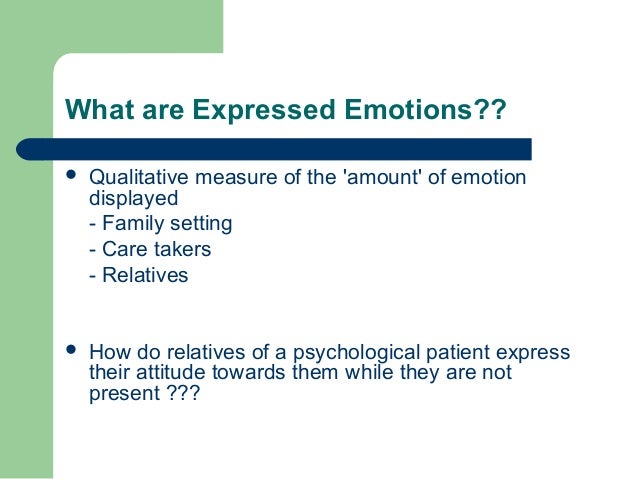


Expressed Emotions
The expressed emotion (EE) is considered to be an adverse family environment, which includes the quality of interaction patterns and nature of family relationships among the family caregivers and patients of schizophrenia and other psychiatric disorders Influence of EE has been found to be one of the robust predictors of relapse in schizophreniaBackground Expressed emotion (EE) is a measure of the family environment that has been demonstrated to be a reliable psychosocial predictor of relapse in schizophrenia However, in recent years some prominent nonreplications of the EErelapse relationship have been published To more fully address the question of the predictive validity of EE, we conducted a metaanalysis
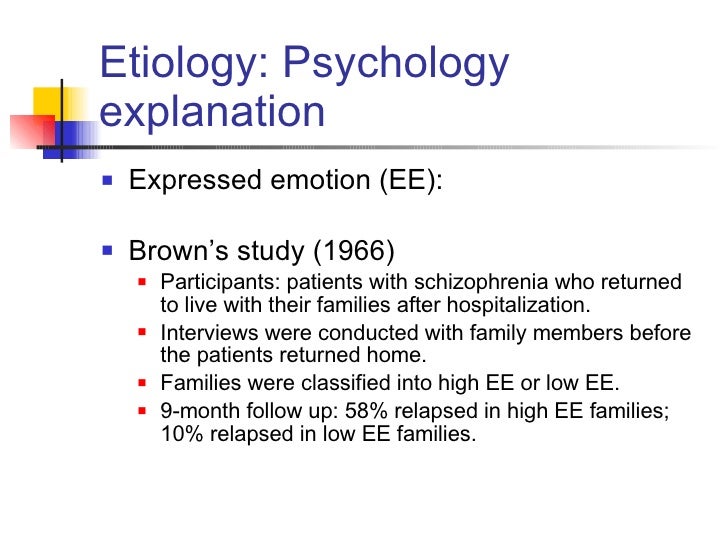


Schizophrenia
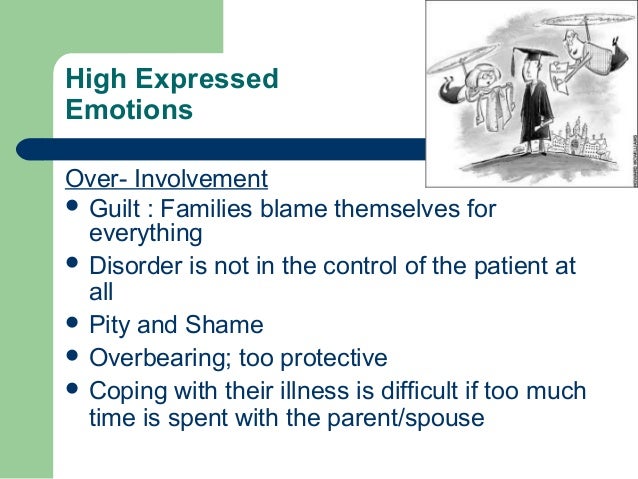


Expressed Emotions



Pdf The Meaning Of Expressed Emotion Theoretical Issues Raised By Cross Cultural Research



Expressed Emotion And Relapse Of Schizophrenia In Hong Kong
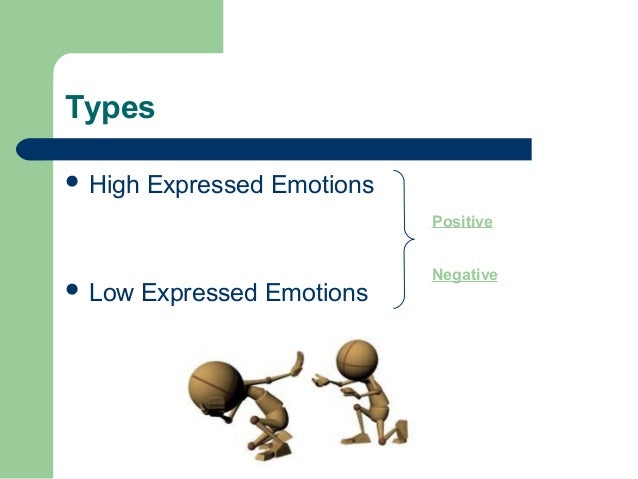


Expressed Emotions



Schizophrenia Topics Psychology Tutor2u



Paper 3 Option Schizophrenia Ppt Download



A Level Psychology Aqa Psychological Explanations For Schizophrenia Youtube



Specification Details Ppt Download



Hypothesized Relationship Among Expressed Emotion Ee Schizophrenic Download Scientific Diagram



Tutor2u Aqa A Level Psychology Revision Blast Schizophrenia 12 May 21 Facebook



Is Empathy A Gift Or A Curse Psychreg


Relatives Attachment Anxiety Mediates The Association Between Perceived Loss And Expressed Emotion In Early Psychosis



Understanding Young Peoples And Family Members Views Of Treatment For First Episode Psychosis In A Randomised Controlled Trial Maps Eclinicalmedicine
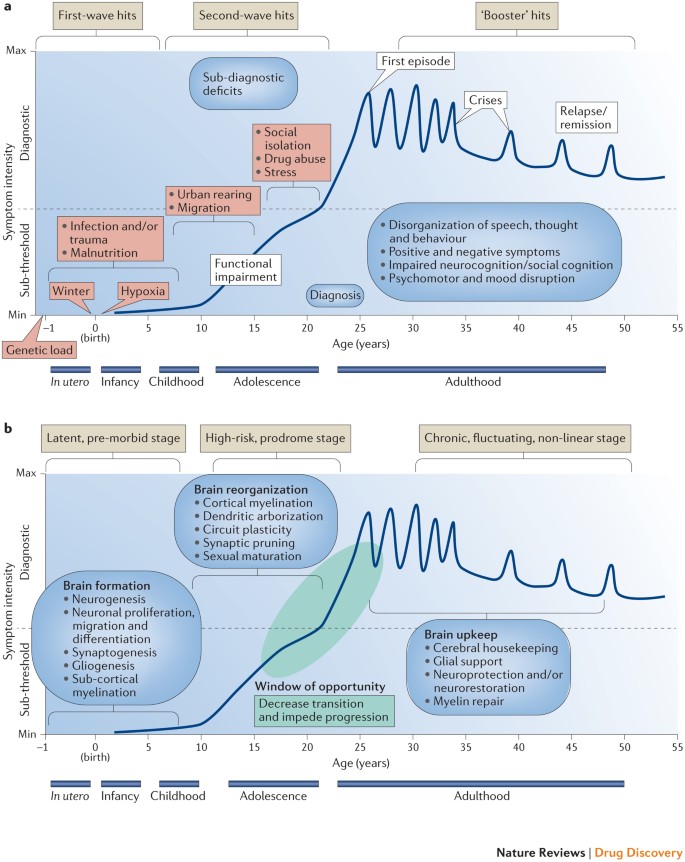


Altering The Course Of Schizophrenia Progress And Perspectives Nature Reviews Drug Discovery
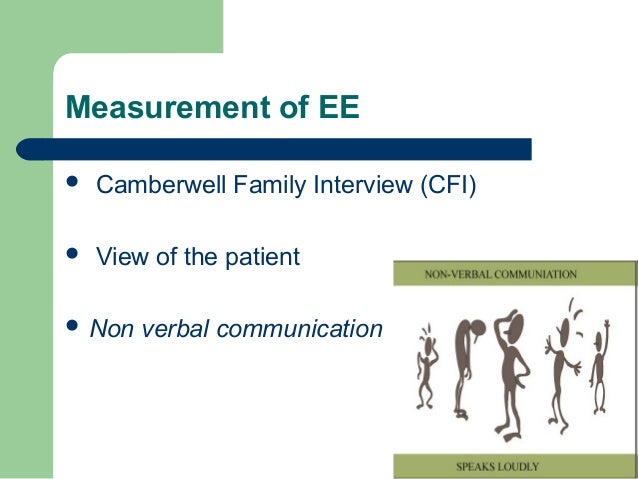


Expressed Emotions
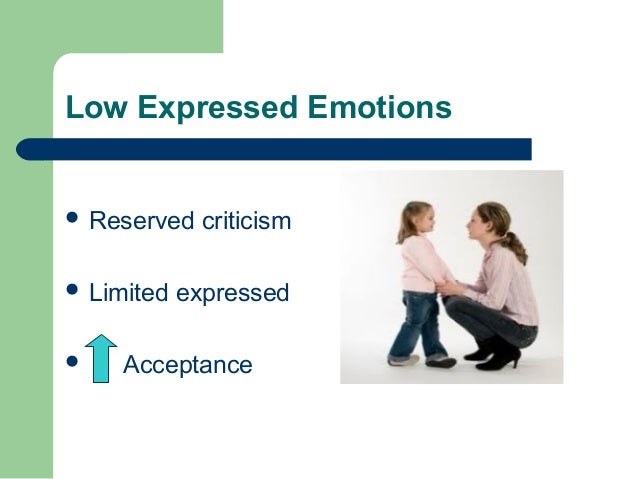


Expressed Emotions
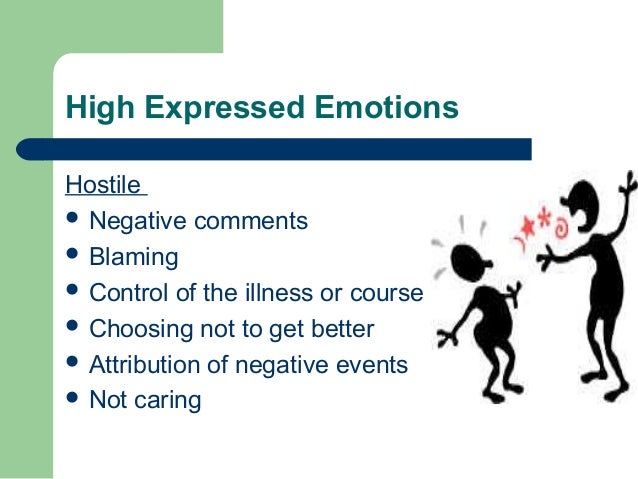


Expressed Emotions



Schizophrenia Topic Assessments For Aqa Psychology Tutor2u



Schizophrenia Genetics A Level Psychology Aqa Revision Study Rocket


Moral Iq Rudeness Abuse Unfairness Calm Mind Open



Schizophrenia What Is Schizophrenia Tutor2u



Neuroscience The Psychotherapist
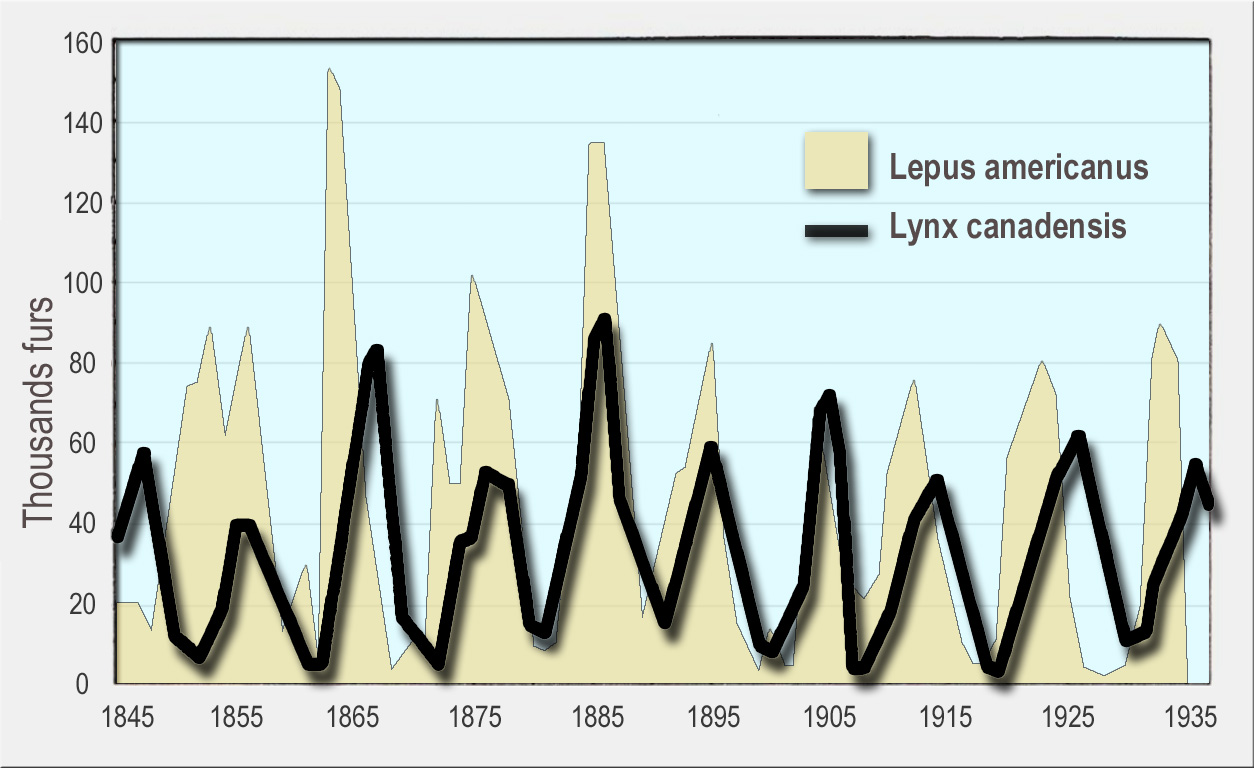


Humans Left Sustainability Behind As Hunter Gatherers Our Finite World
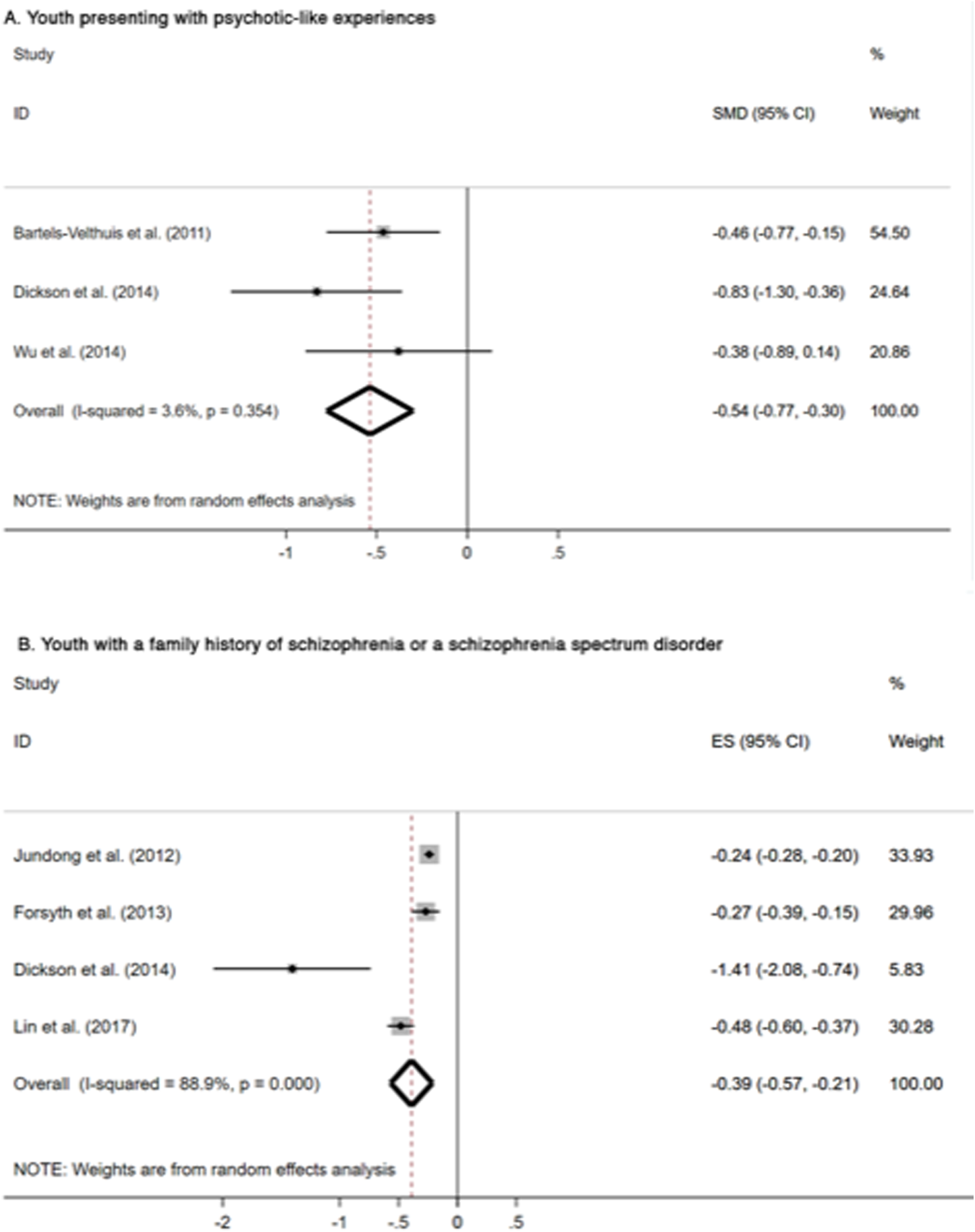


Academic Achievement And Schizophrenia A Systematic Meta Analysis Psychological Medicine Cambridge Core



Specification Details Ppt Download



Determinants Of Expressed Emotion In Mothers Of Schizophrenia Patients Sciencedirect



Stress Impacts Us In So Many Ways From Evolution To Health And Illness Psychreg



A Level Study Notes Schizophrenia Psychology Tutor2u
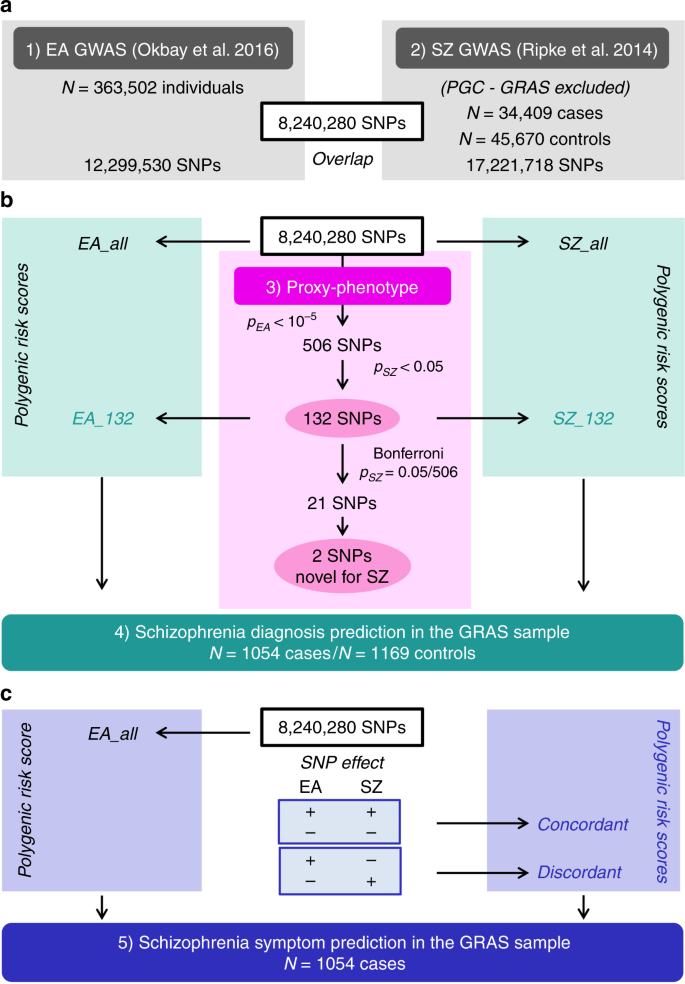


Genome Wide Association Study Results For Educational Attainment Aid In Identifying Genetic Heterogeneity Of Schizophrenia Nature Communications



Expressed Emotions
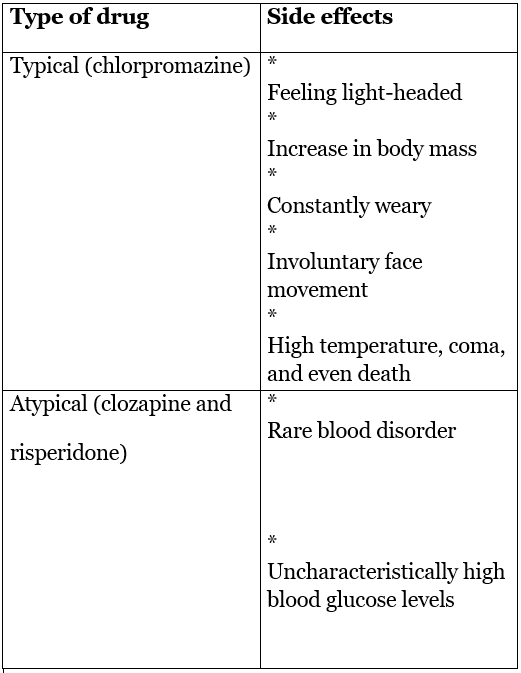


Schizophrenia Quiz Psychology Quiz



Lang Gang 6th Period Inquiries By Bensmithsongs Issuu



Tien45njfehg7m



Psychological Explanations For Schizophrenia Teaching Resources
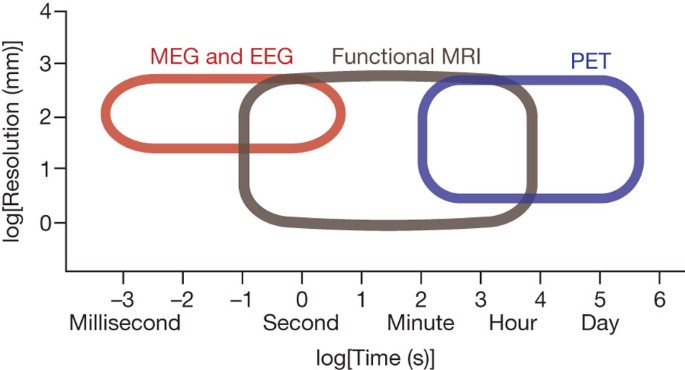


From Maps To Mechanisms Through Neuroimaging Of Schizophrenia Nature



Design St 2 0 Us Army Combined Arms Center And Fort



Psychological Explanations For Schizophrenia 1 Ppt Download



A Level Psychology Aqa Psychological Explanations For Schizophrenia Youtube



Aqa A Level Psychology Essay Plans Pedsacademy



Aqa A Level Psychology Essay Plans Pedsacademy



Expressed Emotion Framework Download Scientific Diagram



Behavioral Grooves Podcast Podcast Addict



Overview Of Schizophrenia Psychology Resource



Neuroscience The Psychotherapist



Sevenoaks School Ib Prized Writing 16 By Sevenoaks School Issuu



Sociocultural Factors Sz Ppt Download



King S High Sixth Form Subject Choices By King S High Warwick Issuu



Schizophrenia Topics Psychology Tutor2u
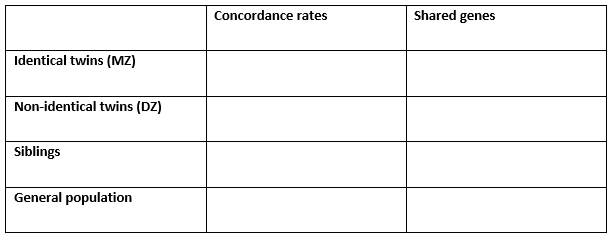


Schizophrenia Quiz Psychology Quiz



A Level Study Notes Schizophrenia Psychology Tutor2u


Social Psychological Explanations Of Schizophrenia Flashcards Quizlet
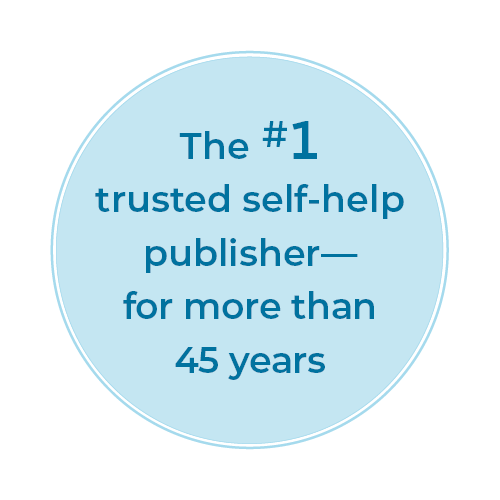


Schizophrenia Psychsolve New Harbinger



A Level Psychology Schizophrenia Aqa Flashcards Quizlet
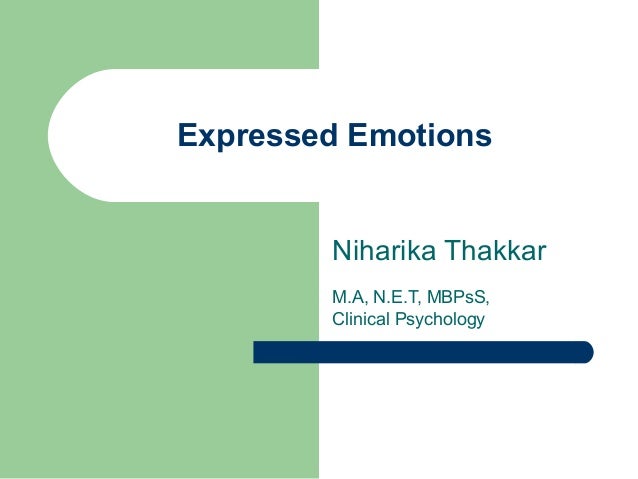


Expressed Emotions



Family Therapy For Schizophrenia Ao1 A Level Psychology Revision Youtube



Specification Details Ppt Download



Schizophrenia Genetics A Level Psychology Aqa Revision Study Rocket



Specification Details Ppt Download



Expressed Emotion And Relapse Of Schizophrenia In Hong Kong



Schizophrenia Coursera



Psychological Explanations For Schizophrenia 1 Ppt Download



Expressed Emotion And Relapse Of Schizophrenia In Hong Kong


